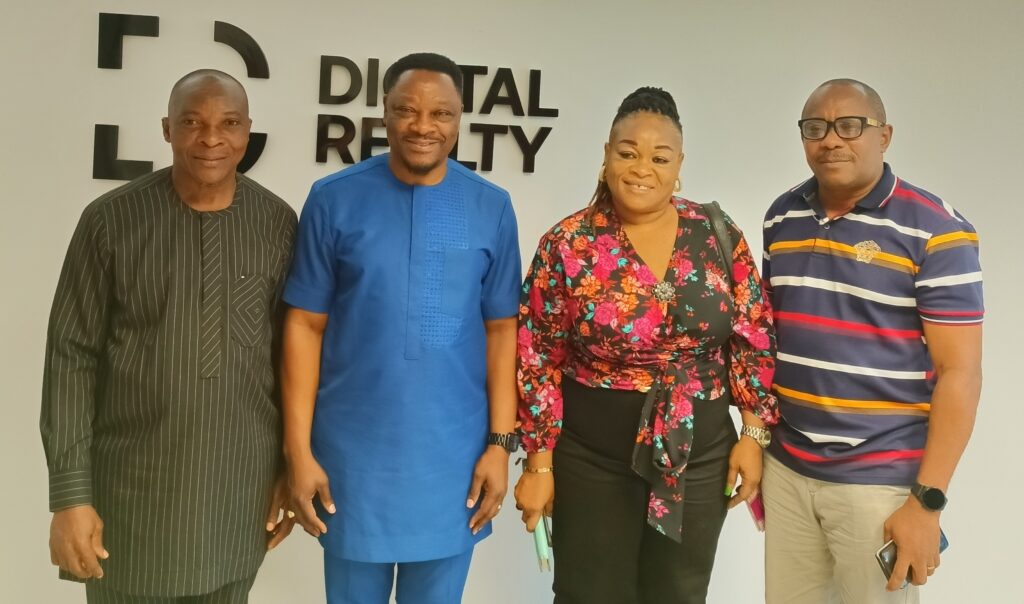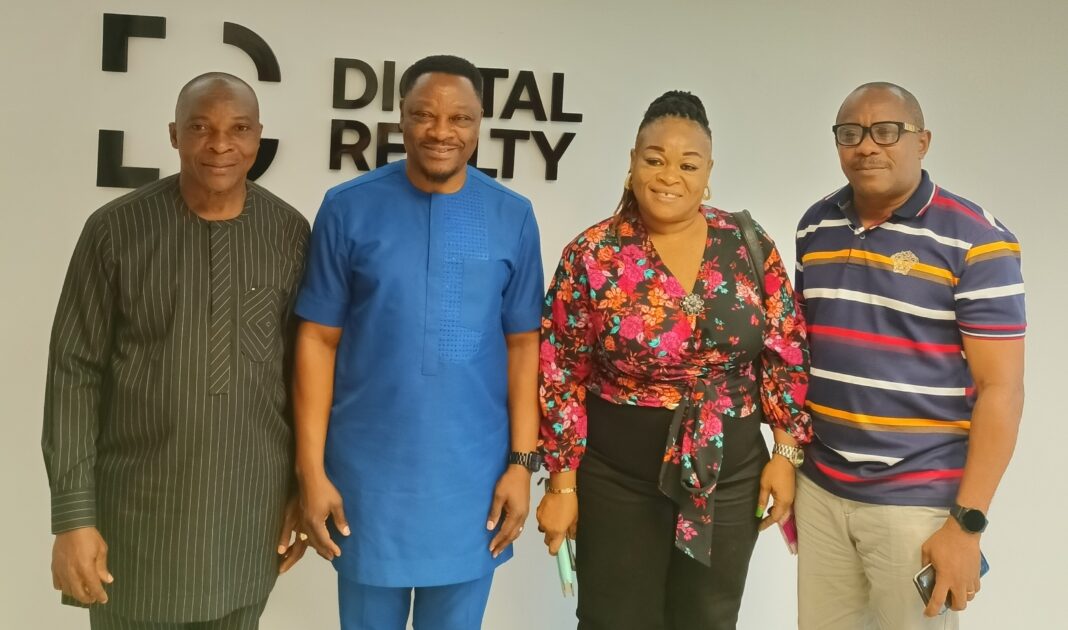The need to develop Artificial Intelligence (AI) as an ethical solution has been highlighted by the Chief Executive Officer of Digital Realty, Nigeria, Engr. Ikechukwu Nnamani.
Speaking during a courtesy visit by the Executive Committee of the Nigeria Information Technology Reporters’ Association (NITRA) as a fall out of the Association’s ICT Growth Conference with the theme “Impact of AI On National Development: Prospects, Policies, and Challenges in Nigeria”, Nnamani noted that people developing ethical solutions for AI are few compared to people producing non-ethical solutions, but have come to take advantage and make money.
Nnamani explained that this trend is not peculiar to Nigeria, but also the reason most developed countries are seeking ways to regulate AI as soon as possible.
“Even the U.S. have a major effort, both in their congress as well as the Executive, to ensure there is work being done on AI Safety and Best Practices, reason being that some companies or individuals are only looking at AI from the value it adds to them, without thinking of what the consequences for any value is. One starts looking at it from an ethical standpoint
U.S. and every other country, their governments are actively involved in creating the right policy, to be sure that it is not abused. But more importantly, to be sure they are able to answer it well.”
While applauding the regulators, he said that on the side of regulation in Nigeria, it is a work in progress. “I don’t even see it is a problem or challenge because to the best on my knowledge AI has not gone too far in its adoption in Nigeria. That means our government, across all areas, need to look back and ask; is there any potential harm from this service or technology? How do we mitigate it? What do we do to stop that harm? And these are things they are doing now by asking people to check things, just to be sure that whatever applications you are running, you are running it ethically.”
Nnamani however allayed fears of unnecessary job less, noting that the advent of AI will further drive up-skilling of Nigerians. “Some have said AI will take jobs away. So, should we stop? Truth is that it is not AI taking anybody’s job away, it is just a case of people needing to be re-trained and find out how to use AI for better efficiency and cost-effectiveness.
Also speaking on the state of Data Centers in Nigeria, Nnamani noted that although Nigeria have increased the number of Data Centers operational in the country in the past few years, it is not yet enough to take care of its bourgeoning data and digital economy.
“Some report that was published some years back indicated that Nigeria, as at now, should have at least 600 megawatts of IT load, giving the size of our economy, population, GDP, and what it should be if we are a truly digital economy. Today we have about 30 megawatts. So, you can see the percentage of what we have compared to what we need to have. That is even in terms of the size of IT load which is a metrix we use. Now in terms of quantity, for instance, if you go to a city like Toronto, last time I checked there were over 30 Data Centers in that city.
The reality is that we have not started, we are not even anywhere close to starting, if we really understand what needs to be done to have a truly digital economy.”
He observed that the Data Center sub-sector needs a lot of people with foresight to draw investors and put up infrastructure.
“And then, of course, from the government side, it requires a lot of support. Not just from regulation as a means to extracting income to the regulators, but regulation as actually a way of growth for that industry. Luckily we have very good regulators who understand this part of the telecom industry, so they are as supportive as can be, but we still need a lot. All these must come together for us to see a fully digital economy, which I believe is the goal of everybody,” he said.
In Lagos, for instance, there is a lot of progress in the build-out of this infrastructure, but you hardly see much in every other State. So there is still a lot of work that still need to be done. There are still some cross-city service that still need to be run for the overall growth of the economy and social wellbeing of the people that the infrastructure still do not exist,” he said.
Nnamani listed some of the key challenges facing Data Center operation in Nigeria to include Power and FOREX, which he said the Federal Government should do good to tackle.
“The truth is that doing business in Nigeria is challenging. Everybody knows that. And the biggest challenge, probably, is FOREX. Initially, having access to FOREX was the issue. But for us that have access to FOREX, it is how is the FOREX trending? And does it create a measure of stability for you to be able to make business projections. Look at power, for instance. Power that you assume should be available to you if you are a business person, you pay for the power and it won’t be delivered,” he concluded.
The NITRA ICT Growth Conference gathered industry stakeholders to discuss the way forward in the deployment and use of AI in the system.














